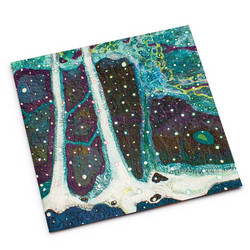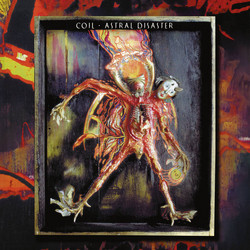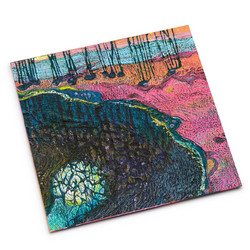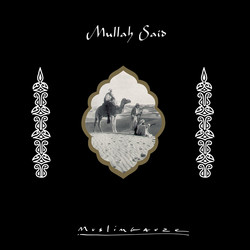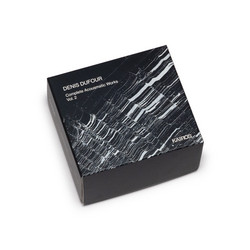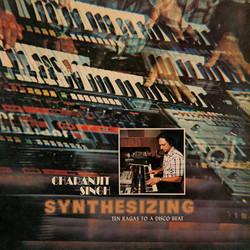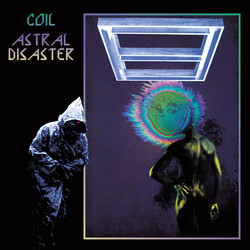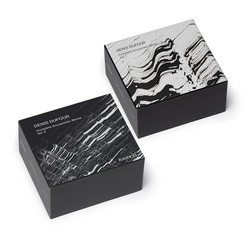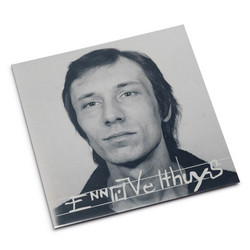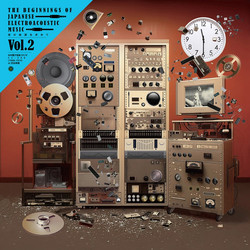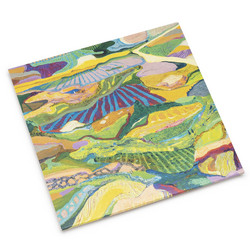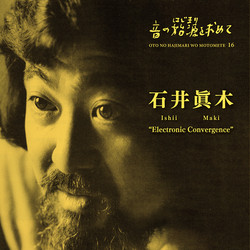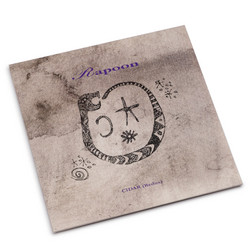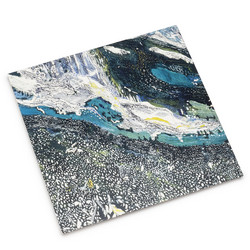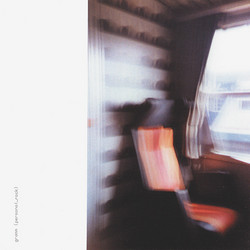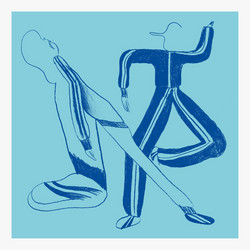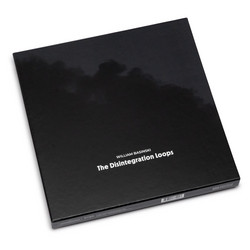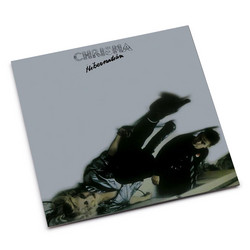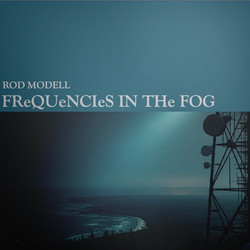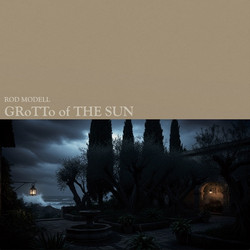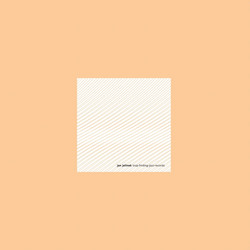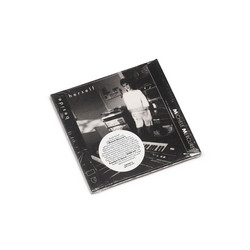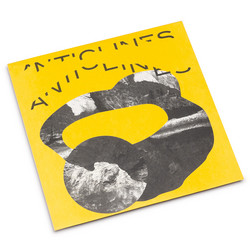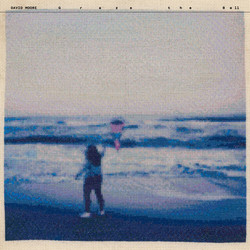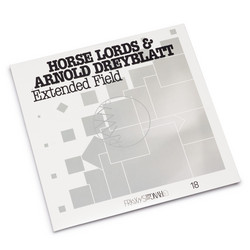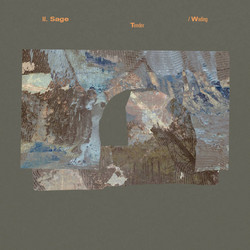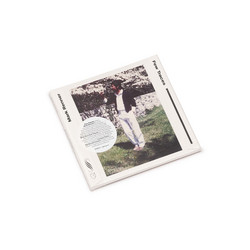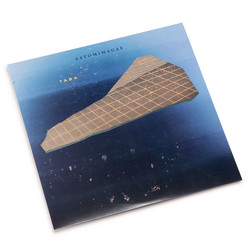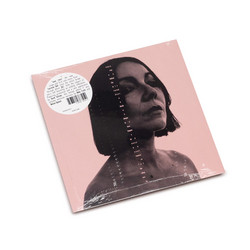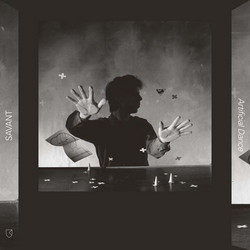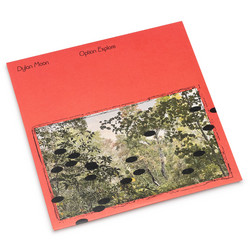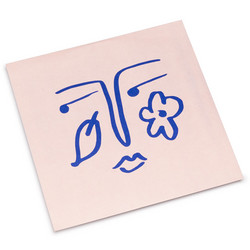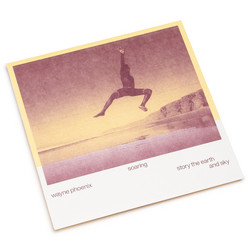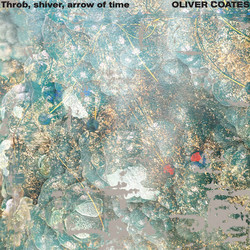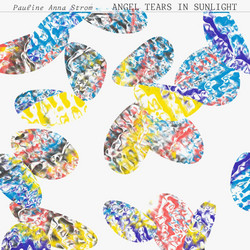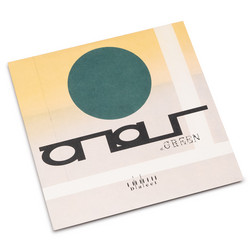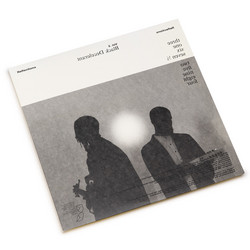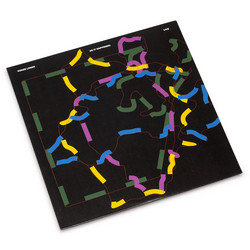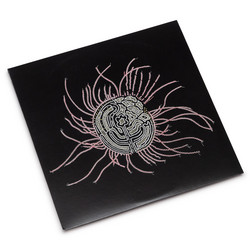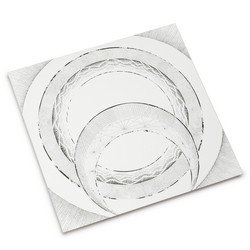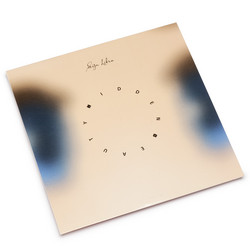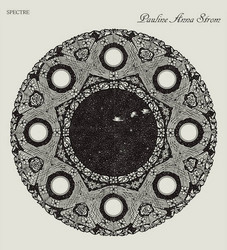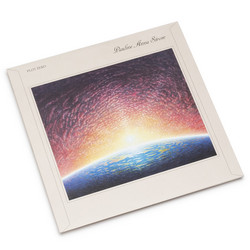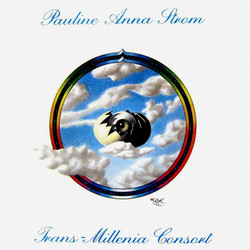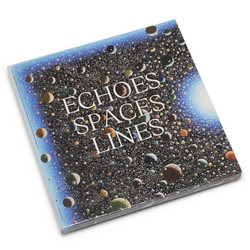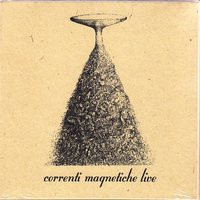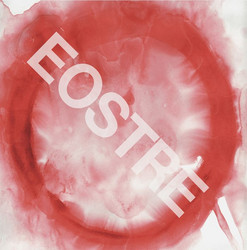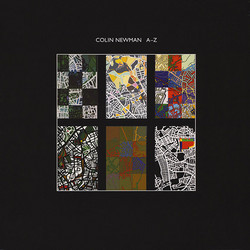Originally issued in 1986. You can see the sounds her voice makes. The literal depiction of this, a photograph of Michele Mercure with an eyeball in her mouth, is removed in the updated album art. The original graphic elements are left to suspend, speak, and sing across time. In the absence of the decade-specific portraits, the redesigned edition is dislocated from a particular or linear history. Our initial point of encounter is artifactual; a trace in place of a scar. Accordingly, Michele’s true image and body is sound. Eye Chant, as a whole, offers meditations of sound as material. Her instruments are voice and synthesizer, the former following the machine’s lead and language of patterns. Machine sounds become abstract words. The human voice is pulled apart, dislodged from context; a tactile, textured quality appears to reconfigure the body and machine presently or permanently.
The natural and the mechanical elements of Eye Chant commingle with the ease of a musician well-versed in the social-material entanglements of life. Like the lacework referenced in one track, Mercure’s record alludes to interconnections and their unraveling. Her married name formerly attached to Eye Chant has been shed for this iteration. As her electronic kin, Eliane Rodigue and Suzanne Ciani would attest, it’s all raw material for the musician to give form. Donna Haraway and Lucy Suchman may have been listening.
Michele offers a tender mechanics to attune to. Atmospheres expand and contract within a song, sometimes reappearing in the album – the economy of means appreciated from another vantage. Loops and undulating rhythms build up a particular kind of surface, one that places the listener in the present moment, to notice and extend that time of being here.
To get a sense of the space Mercure’s work occupies: compositions on this album were part of a PBS special and a performance artist’s production. The most narrative moments of Eye Chant, these commissioned pieces, “Proteus and the Marlin” and “100% Bridal Illusion,” are hyper feminine tracks made up of choirs of birds, breath, baby cries, waves, and poetry read just above a whisper.
The title track, “Eye Chant,” is a single vocal sample that’s sequenced and melodically layered upon itself. A perfect minimal composition, where there’s no excess blurring how it was made and its final crystalline form. “Too Much” closes the album with some danceability. We have traveled far from the start — “Tour de France,” where the synthesizer resembles a faucet drip and we reset — to the pace of our heart and breath.
When focused on the moment the mind wanders as it likes. It feels as though there’s a collective and urgent need to decelerate. Rather than chasing the new sound or accelerating discovery, deceleration allows us to pay heed to what’s less heard. Finding our time in continuum with others’ might be one of many impulses for reissues.
One way to interpret the name, Freedom to Spend, is an abundance of freedom that needs to be shared. In that spirit, the free thinking / art of Michele Mercure is recirculated. Eye Chant is available February 3, 2017.
